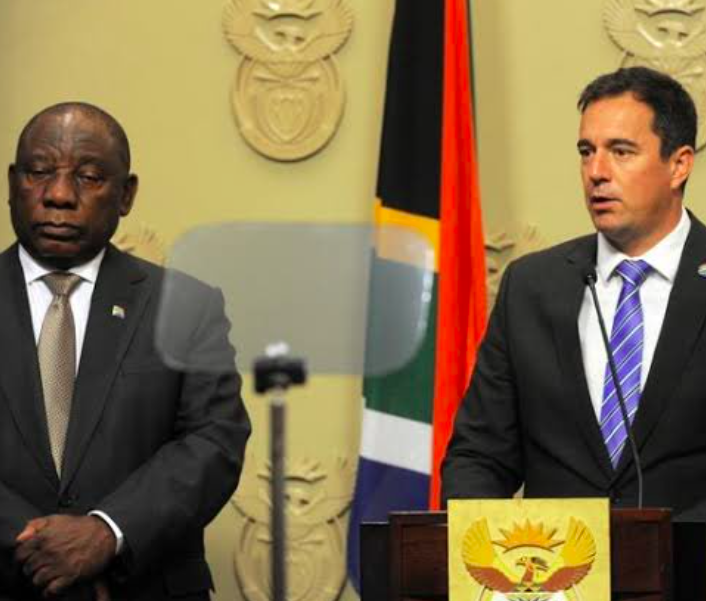By Betha Madhomu
As South Africa’s Government of National Unity (GNU) marks its 100th day in office, the nation stands at a critical juncture, balancing optimism against scepticism.
Formed after the May elections, this coalition of 10 political parties has been touted as a potential remedy for the country’s pressing social and economic challenges.
President Cyril Ramaphosa’s recent engagements at the New York Stock Exchange and the United Nations General Assembly have reignited discussions around the GNU’s impact on investor confidence and national recovery.
In a fervent address to investors at the NYSE, Ramaphosa asserted that the GNU has significantly boosted confidence in South Africa’s economic recovery.
He said, “The level of confidence has now gone up enormously,” suggesting that both citizens and investors are beginning to believe that the government can effectively address social needs.
This narrative positions South Africa as a model of recovery that could inspire other nations facing similar challenges.
🇿🇦 His Excellency President @CyrilRamaphosa addresses the SA-US Interactive Business Forum
At the New York Stock Exchange.President Ramaphosa engaged with business leaders as part of his drive to attract foreign direct investment for South Africa. #BetterAfricaBetterWorld 🌍 pic.twitter.com/lrcV7TvT26
— The Presidency 🇿🇦 (@PresidencyZA) September 24, 2024
Ramaphosa’s invitations to global investors, alongside discussions with influential figures like Elon Musk regarding investment opportunities, underscore the administration’s focus on inclusive growth and structural economic reforms.
The ambitious target of R2 trillion in investments over the next five years signals a commitment to revitalising the economy and improving the business environment. Yet, for many South Africans, particularly the youth grappling with unemployment, these lofty goals may feel disconnected from their daily realities.
Critics like political economist Duma Gqubule remain wary, painting a bleaker picture for the future.
Gqubule contends that the GNU risks perpetuating the same economic policies that have failed for over a decade, without any substantive shift in strategy.
His concerns resonate strongly, particularly regarding the lack of concrete plans to tackle the alarming unemployment rates projected to rise by an additional two million under the current administration.
“I pray that this thing collapses you know. I hope it collapses and we can begin to think about what change will look like. The prospects are not good for South Africans, especially the youth because my focus is unemployment. After 100 days, they have never said anything about how they going to address this unemployment crisis.
“Nothing from the Central Bank and nothing from the Treasury but they are just planning to tighten the screws of these failed micro-economies. So what they going to do in the budget in 2025 is to introduce a primary surplus target of two per cent and inflation target of 4.5 per cent which will make the economic crises worse,” he said during an interview with SABC News.
“They have just repeated the same economic policies that have failed over the past 15 years with different people… this is the ANC government, it feels like an ANC government.
“They are doing the same thing and the results will be the same as they were over the last 15 years. According to my modelling, the number of unemployed people is going to increase by two million to 14.4 million by the end of this administration… at the same time unemployment will increase by 44.6%.”
Professor Ntsikelelo Breakfast also cautions against premature celebrations of stability.
While the initial sentiments around the GNU may appear positive, the real test will come when it confronts contentious issues like the National Health Insurance (NHI) and foreign policy.
The ability of this coalition to navigate these complex waters will ultimately determine its effectiveness.
Despite the mixed signals, the initial response from markets has been cautiously optimistic, reflecting a desire for stability. Investors seem willing to give the GNU the benefit of the doubt—at least for now. However, any signs of instability within this coalition could quickly reverse these gains, placing the economic recovery at risk.
As the GNU celebrates its first 100 days, it faces the daunting challenge of translating positive rhetoric into tangible outcomes.
The recent engagements by President Ramaphosa may bolster investor sentiment, but for the average South African, the need for real change is more urgent than ever.
The coalition must prove it can deliver on its promises by addressing unemployment, driving economic reforms, and ensuring that the benefits of recovery reach all corners of society.
In essence, the GNU stands at a crossroads, with its next steps critical for shaping South Africa’s future.
Will it evolve into a transformative force that meets the aspirations of all citizens, or will it fall victim to the pitfalls of past administrations? The answer lies in its ability to implement effective policies that resonate with the lived experiences of the people it seeks to serve.
Only time will reveal whether this coalition is a harbinger of genuine change or merely a temporary reprieve in a long-standing struggle for economic justice and social equity.
Follow African Insider on Facebook, Twitter and Instagram
Picture: X/@insightfactor
For more African news, visit Africaninsider.com


